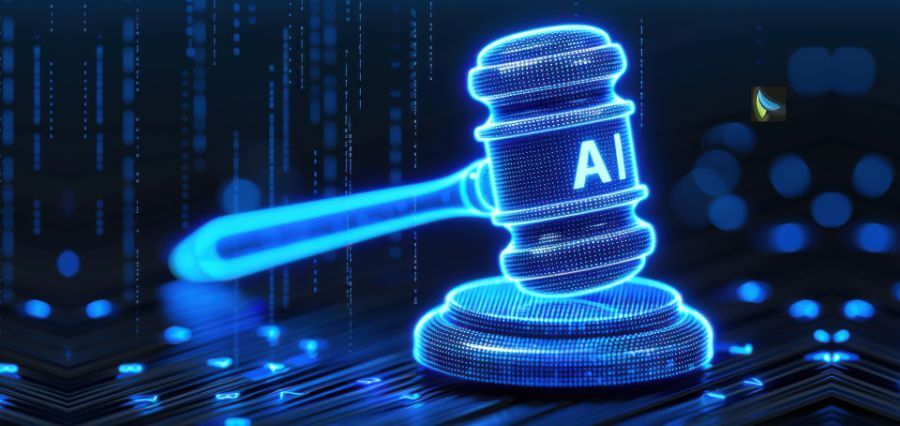Introduction
Artificial Intelligence (AI) has revolutionized various industries, and the legal field is no exception. The integration of AI in legal practice has brought about significant opportunities, enhancing efficiency, accuracy, and accessibility in legal services. However, it also raises critical ethical concerns that need to be addressed to ensure that the benefits of AI are realized without compromising the integrity of the legal profession.
Opportunities Presented by AI in Legal Practice
1. Efficiency and Cost-Effectiveness
AI-powered tools can automate routine tasks such as document review, legal research, and contract analysis. This automation reduces the time and effort required for these tasks, leading to significant cost savings for law firms and their clients. AI systems can process vast amounts of data in a fraction of the time it would take a human, allowing legal professionals to focus on more complex and strategic work.
2. Enhanced Legal Research and Predictive Analytics
AI algorithms can analyze legal precedents, case law, and statutes more efficiently than traditional methods. These tools can identify relevant cases, predict outcomes based on historical data, and provide insights that assist lawyers in crafting more effective arguments. Predictive analytics, in particular, allows lawyers to assess the likelihood of success in litigation, helping clients make informed decisions about pursuing legal action.
3. Improved Access to Legal Services
AI has the potential to democratize access to legal services by providing affordable and scalable solutions. AI-powered legal chatbots and platforms can offer legal advice, draft documents, and guide users through legal processes without the need for expensive legal representation. This is particularly beneficial for individuals and small businesses that may not have the resources to hire a lawyer.
4. Accuracy and Consistency
AI systems can minimize human errors in legal work by providing consistent results based on data analysis. For example, AI can ensure that contracts are free of errors and that all necessary clauses are included. This accuracy is crucial in legal practice, where even minor mistakes can have significant consequences.
Ethical Concerns Surrounding AI in Legal Practice
1. Bias and Fairness
AI systems are only as good as the data they are trained on. If the data contains biases, the AI can perpetuate and even amplify these biases in its decision-making processes. For example, AI used in legal sentencing has been criticized for reinforcing racial biases present in the training data. Ensuring that AI systems are free from bias is a significant ethical challenge that requires careful attention to data quality and algorithmic transparency.
2. Accountability and Liability
The use of AI in legal practice raises questions about accountability. If an AI system provides incorrect advice or makes an error, determining who is responsible can be complex. Should the blame fall on the developers of the AI, the legal professionals using it, or the AI itself? The lack of clear accountability frameworks can undermine trust in AI-driven legal services.
3. Confidentiality and Data Security
Legal practice involves handling sensitive and confidential information. The use of AI in managing and processing this data raises concerns about data security and privacy. If AI systems are not adequately secured, they could become targets for cyberattacks, leading to breaches of client confidentiality. Lawyers and law firms must ensure that AI tools comply with stringent data protection standards to safeguard client information.
4. The Erosion of Human Judgment
While AI can enhance efficiency and accuracy, there is a risk that over-reliance on AI could erode the role of human judgment in legal practice. Legal decisions often require a nuanced understanding of human emotions, ethics, and societal values—factors that AI cannot fully comprehend. Lawyers must strike a balance between leveraging AI’s capabilities and maintaining their role as ethical decision-makers.
5. Regulation and Ethical Guidelines
The rapid advancement of AI in legal practice has outpaced the development of regulatory frameworks and ethical guidelines. There is a need for clear regulations that govern the use of AI in law, ensuring that it is used responsibly and ethically. Legal professionals must also adhere to ethical standards that consider the implications of AI on client representation, confidentiality, and fairness.
Conclusion
The integration of AI into legal practice presents a wealth of opportunities, from increased efficiency to improved access to legal services. However, these benefits come with significant ethical challenges that must be addressed to ensure that AI enhances, rather than diminishes, the integrity of the legal profession. As AI continues to evolve, it is essential for legal professionals to engage in ongoing dialogue about the ethical implications of AI and to advocate for regulatory frameworks that promote the responsible use of AI in law. Balancing the opportunities and challenges of AI will be key to shaping the future of legal practice in a way that serves both the profession and society at large.
Contributed By- Pratyush Singh (Intern)

